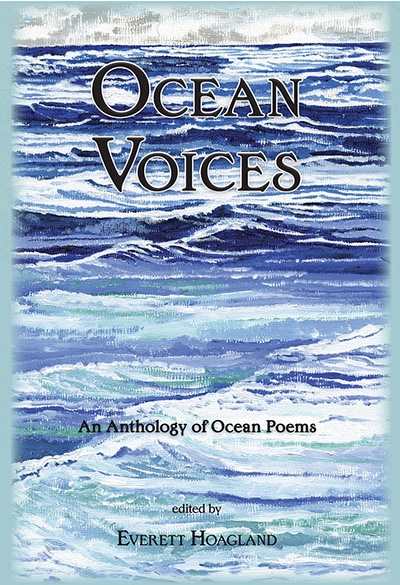Poetry on My Nerves
Foresight: Poetry
AN IMAGINARY CONVERSATION BETWEEN THE HIGH PRIEST OF LITERATURE AND A HUNGOVER ASSISTANT VARSITY COACH OF POETRY
HPL: Diffuse, exasperating poetry. The wattage you demand doth surely draw down the brainpower grid. Were it not for the fact that you are slender and unobtrusive on the shelf—and economical—your status here would be uncertain. The point is, Rainer Rumi Slitmywristovich, you and your kind are hardly worth the energy, aside from the occasional missive that leaves readers profoundly transformed. Moreover, you’re not well liked by your literary colleagues: You make other writers feel lowbrow. What, pray tell, do you have to say for yourself?
HAVCP: Ahem. You, sir, are my shining knight. Will you say that part again about my profundity? We can make do with fewer pencils and less paper, but please don’t touch my coffee and cigarette stipend. And we’ll try not to make Jonathan cry at lunchtime. The little putz just doesn’t know how to keep his mouth shut. If I may, in the words that rhyme with “shut” department, that floozy Francine is a real handful. She may be one of your bestsellers, but I speak from experience when I say that her longhand skills are much better suited for what happens under her desk. Ever so humbly, sire, please take a close look at these excerpts from the latest works of five wunderkinds of mine. Nothing would make me happier than if you placed them all on your recommended-reads list.

For sheer readability, and humor of the most outlandish sort, Donald Dunbar’s Eyelid Lick (Fence Books, 978-1-934200-63-6):
Dear Emmett,
The way you leave rooms is
like you’re entering another room, one
far more wondrous and colorful than which-
ever room I’m in, as if I can feel the needle of your
compass scraping away from
me and towards this magnificence.
I’m always happy to see you go.

Because compendiums like this self-select salt-loving readers into the enchantments of poetry’s finest hands—Melville, Dickinson, Whitman, Neruda, amongst others—Ocean Voices: An Anthology of Ocean Poems (Spinner Publications, 978-0-932027-26-9) edited by poet Everett Hoagland, will float any boat:
These Days
by Laurie Robertson-Lorant
These days, when I go to the beach
I take nothing for granted.
These days I am just grateful for
the persistence of waves.
Thank you, Ocean, for the chemistry of my blood
for plankton, whales, anemones and cod,
for turtles, pelicans and manatees—
for tide pools, estuaries, and the barrier beaches
where Rachel Carson strolled at night to watch
ghost crabs foraging in the sand,
their burrows open to the stars and splashes
of moonlight silvering the sea.

Nature’s poets allow us to put our feet in the same river twice, even if that’s impossible, and Susan Allspaw’s Little Oblivion (Elixir Press, 978-1-932418-47-7) reveals Antarctica in unimaginable extremes:
SOUTHERN OCEAN, FAIRIES, AND WINTER SOLSTICE
COUNT YOUR BLESSINGS TO SEE THE PANCAKE ICE
FORMING SOLID FLOES BEFORE THE SHIP, CLOUDS
WITH SILVER LININGS AND FAIRIES DARTING
BETWEEN SALTY FROST FLOWERS. ONLY ANGELS
SEE THE ICE GROWTH OVERNIGHT, ONLY FAIRIES
CAN FIND THE FISSURES BEFORE THEY SPLIT OPEN
AND LET THE MOON THROUGH. WE FIND A PLACE
BESIDE A FLOE, DIG A HOLD, DIG TWO. TAKE SAMPLES.

The idea that Wanda S. Praisner penned forty-eight poems—collected in Where the Dead Are (CavanKerry Press, 978-1-933880-35-8)—just to pay homage to Mark Doty’s notation, “We don’t know where the dead are. But it’s just as true, finally, that we don’t know where we are,” is at once dumbfounding and irresistible:
come night
she listened to each story,
told how her child died,
thought grief must be like the hot tea she held—
a matter of letting it go cold in the cup,
a matter of waiting.
she looks up to the line of windows
under the shingled roof. come night,
she thinks, in bituminous dark—
all the bedroom lights will be on but his.

For the love of poets who use words with sharp-stick-in-the-eye impact, Barbara Swift Brauer’s At Ease in the Borrowed World (Sixteen Rivers Press, 978-0-9819816-8-0):
New Names
The bird is there among the blueberry leaves,
brown with a mottled white bib,
and a penchant for flying indoors.
Look for it under intruder or busybody,
or broom, birds to be removed by.
It will have a different name from the one by which
my father called it. Now the scientist is dead,
the world is a different place and missing most of its parts.
We will have new names for everything we see:
gentle forest stalker, flowers resting on water,
Chattering bushy red-tail.
The slender birch, intimate over the lake, will be
how to find the way home again.
Matt Sutherland is a contributing editor to ForeWord Reviews.
Matt Sutherland
